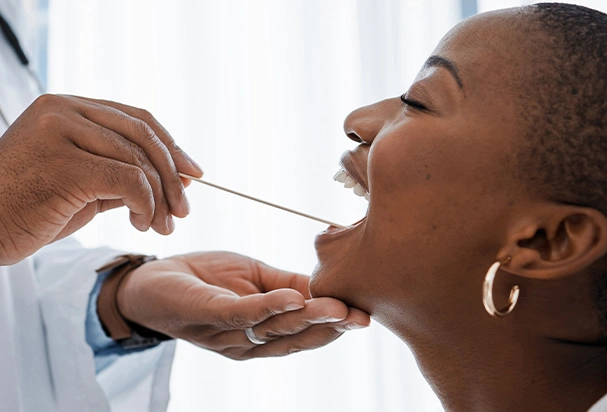
Understanding Oral Cancer Screenings
Oral cancer can impact individuals of any age, though certain risk factors, such as smoking or chewing tobacco, increase susceptibility. To stay ahead of potential issues, we recommend annual oral cancer screenings for all patients. Early detection is key, as it makes treatment more manageable and effective.
Why Oral Cancer Screenings Are Important
Lifestyle factors such as smoking and chewing tobacco can significantly increase the risk of developing oral cancer. Even if you’ve stopped smoking years ago, regular screenings remain crucial for monitoring your oral health. The screening process is quick and can help in detecting issues early, which makes treatment more effective. Regardless of your tobacco use history, we recommend regular oral cancer screenings to help prevent potential problems.
Who Should Consider Oral Cancer Screenings?
If you smoke, use tobacco products, or have a family history of cancer, we highly recommend regular oral cancer screenings. Most adults should consider these screenings as a preventative measure. The process is quick and can help detect issues early, offering significant benefits for your oral health.
What to Expect During an Oral Cancer Screening
During an oral cancer screening, will start with a standard dental examination. He will then examine the underside of your tongue and visually inspect the inside and outside of your mouth for any unusual lesions, bumps, or plaque-like areas that might indicate oral cancer. If anything concerning is found, a biopsy may be recommended to determine if the area is benign or cancerous. Most screenings result in negative findings, but early detection is crucial for addressing any potential issues promptly.
